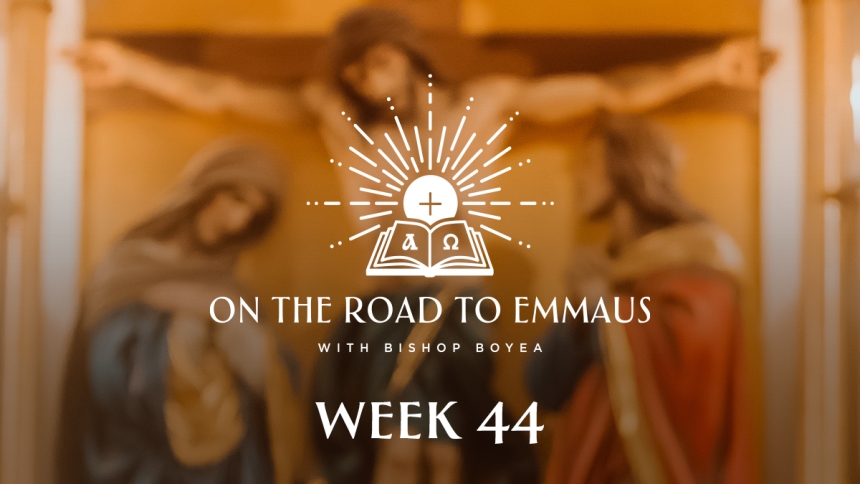
April 12, 2024
Friday of the Second Week of Easter
Dear brothers and sisters in Christ,
Let’s start this week On the Road to Emmaus with a question: What is the most famous prayer in the world? It has to be The Our Father! There have been many commentaries written on these words which were given to us by Jesus. Many of us recite this divinely-ordained prayer every day. We certainly pray it at every Mass before our reception of Holy Communion. Said here, at this point in the Mass, three things are important for us to examine: that we say, “Our Father,” that we pray for his kingdom to come, and that we pray for our daily bread.
It is almost incredible to think that we can call God, “daddy.” But that is the word that Jesus has told us to put on our lips, “Abba, Father.” God, any god, is supposed to be far from us, not really care about us, and certainly we are not to be so presumptuous as to call him, “daddy, Abba.” This kind of loving, close, intimate relationship which Jesus has with the Father, has been given to us. What has been the very nature of the life of the Trinity, a life of perfect love, is now ours for the asking. That is why praying these words is the perfect start for Communion, Holy Communion. We have been invited into the most sacred Communion of the Blessed Trinity, into perfect love. Jesus, our brother, has opened the way into that life by letting us become sons and daughters to His Father.
As a manifestation of our communion with the Trinity, of our union with the Father, we pray that his kingdom may come. The 3rd century Christian scholar, Origen of Alexandria, writing on prayer, noted: “Thus it is clear that he who prays for the coming of God’s kingdom prays rightly to have it within himself, that there it may grow and bear fruit and become perfect. For God reigns in each of his holy ones.” We are not just praying that the Kingdom of God will come somewhere out there. Rather, it is to be in us. Jesus, at the Last Supper, responded to one of the apostles: “Whoever loves me will keep my word, and my Father will love him, and we will come to him and make our dwelling with him” (John 14:23). This is the nature of Communion with God: we are changed by the very presence of God within us. The entire Mass celebrates that presence which began with our Baptism.
Finally, we pray for daily bread. Most likely this originally referred to our actual daily sustenance. However, it did not take long at all to see it as a reference to the daily Eucharist. St. Cyril of Jerusalem, in his 4th century Catechetical Teachings on the Our Father (#23), proclaimed: “This common bread is not substantial bread, but this Holy Bread is substantial, that is, appointed for the substance of the soul. For this bread goes not into the belly and is cast out into the draught, but is distributed into your whole system for the benefit of body and soul.” By praying these words of Jesus, we are now preparing ourselves for a yet deeper Communion, that with the very Body and Blood of the Savior.
Immediately after our common prayer, the priest adds that we be delivered from evil, and sin, and distress. This is so that we will in fact be worthy of our Communion with the Father and with the Son and with the Holy Spirit as well as our Communion with one another. It is Christ who willingly and joyfully gives us freedom from our sins if we but turn to him. The priest’s words are a summons to us to allow ourselves to be prepared for that deepest Communion of all.
And now to our weekly challenge: As we’ve just been exploring, the daily bread of the Our Father has always been connected to the Holy Eucharist. Hence, this week, I’m challenging you to extend the Eucharistic fast prior to receiving Holy Communion. At present we are only required to fast for one hour before Holy Communion. So why not make it one hour prior to the beginning of Holy Mass or for even longer? Now, don’t go mad. Don’t harm your health. But do consider doing even a little bit more out of love for Abba, Our Father.
Until we meet again On the Road to Emmaus, God love you all.
+ Earl Boyea
Bishop of Lansing
